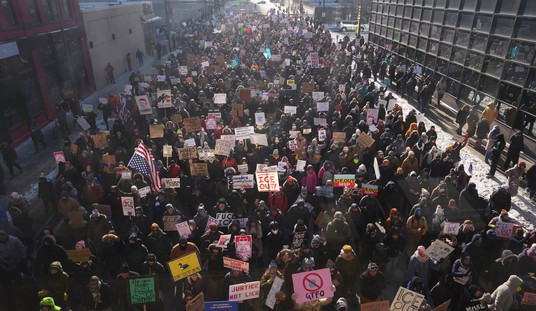When did America risk coming to be ruled by foreign scientists and apparatchiks at the United Nations? The answer, it would seem, is ever since Lisa Jackson, the administrator of the Environmental Protection Agency (EPA) under President Obama, chose to issue a rule determining that carbon dioxide and other greenhouse gases endanger the public health and welfare.
Administrator Jackson acted to make her so-called “endangerment finding” on December 7, 2009, and befitting the historically tone-deaf selection of Pearl Harbor day for her announcement, the precipitous action embodied in the endangerment rule will also unleash immense negative consequences for the American economy entirely unexpected by most of the citizenry.
What would come as an even greater surprise to the public is that the endangerment rule is inextricably rooted in science performed by UN-designated scientists and reports written by UN bureaucrats. “I cannot think of any instance where the EPA depended so heavily on non-EPA synthesis reports to justify proposed regulatory action in [its] almost 39 years of existence,” noted Dr. Alan Carlin alarmingly.
Economist Dr. Carlin has been an employee of the EPA for 38 of those 39 years, performing complex risk assessments for EPA regulations. So his qualifications to look back with a keen eye across EPA’s history are tough to match. And yes, this would be the same Dr. Carlin that the EPA attempted to muzzle last spring and summer for arguing, within the halls of the agency, that the endangerment rule was unsupported. In an administration that congratulates itself for being the most transparent in history, Dr. Carlin was directly told to stop his work on the endangerment rule.
EPA’s abdication of responsibility to the UN is troubling not just because it risks erosion of American sovereignty, but because it poses other serious legal issues. The Clean Air Act commits discretion to the EPA administrator to exercise “her judgment” to decide whether to promulgate an endangerment rule. Yet much of the critical science that she invoked was not open to the public because it was not performed under EPA auspices. The EPA administrator’s judgment is arguably on UN auto pilot, and that’s quite disturbing given the recent revelations in “Climategate” concerning the manipulation of data and the suppression of dissenting scientific viewpoints that several parties have raised in pending litigation in the D.C. Circuit brought to challenge the issuance of the endangerment rule.
During the Bush administration, environmentalists (including several now holding high posts within the Obama administration) were keen on arguing that because the Clean Air Act commits responsibility to the EPA administrator to make various policy and science judgments, it was unlawful for the president or officials at the Office of Management and Budget to even become involved in such EPA decisionmaking.
That position reflects a profound misunderstanding of our Constitution and its structure. The EPA administrator reports to the president. And the president’s involvement in decisionmaking is what gives decisions made by executive branch officials legitimacy, for only the president is elected by the American people. The United States is not a technocracy, let alone a UN-ocracy. It is a republic — but only for as long as we can keep it.
Yet, take these environmentalists at their pre-Obama administration word. If EPA’s actions under the laws must be ruled by the personal judgment of the EPA administrator, how can EPA now rely so heavily on UN-sponsored science performed outside of its control? Don’t hold your breath waiting for an answer.
Going further, it is difficult to imagine that President Obama was not involved in specifically directing that the endangerment rule be issued, and be released on December 7 on the nose. The rule’s release occurred only shortly before he departed to accept his Nobel Peace Prize in Oslo. And even more coincidentally, the rule was issued on the opening day of the UN’s Copenhagen conference on climate change, which President Obama went on to address. Major policy announcements are carefully coordinated at the White House. They are not the result of serendipity.
Speaking from Copenhagen herself, Administrator Jackson told reporters: “Certainly, I’m glad we were able to complete the finding and make that statement just before [Copenhagen]. We barely got it. But that wasn’t our impetus.” With all due respect to Administrator Jackson, it’s hard to accept that statement uncritically, if only because ordinary English speakers might naturally say: “I barely got my car inspected before the state registration sticker expired.” (Rushing to complete a deadline implies a causal connection.) They don’t ordinarily utter non sequiturs like: “I barely brushed my teeth before my car’s state registration sticker expired.”
UN processes must be watched carefully for erosions of U.S. sovereignty. Even more vigilance is required as to the endangerment rule — because, like much federal agency action, it moves beneath the radar screen of ordinary Americans. Though with the press attention to Climategate, that is rapidly changing.









Join the conversation as a VIP Member